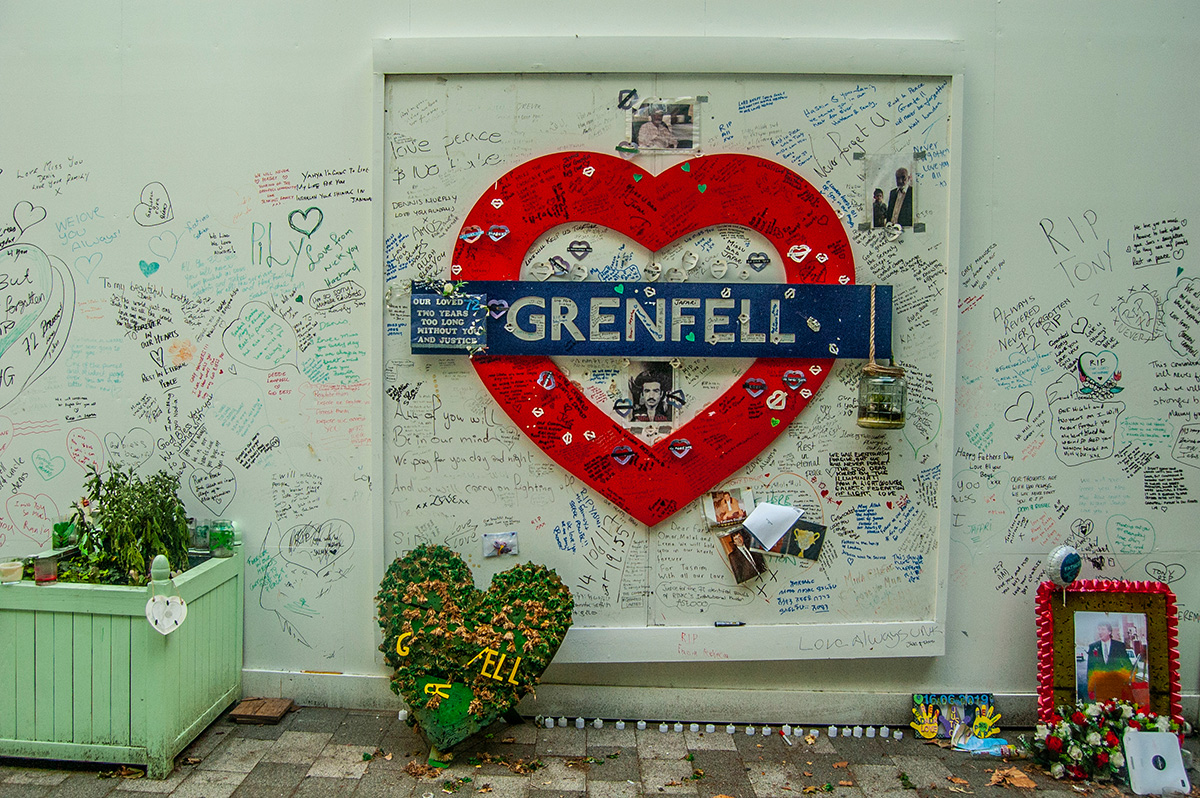
SCOTLAND’S housing minister Paul McLennan has revealed he has met with UK Government ministers to discuss how they can work collaboratively to take the appropriate actions in the wake of the publication of the final report of the Grenfell Tower Inquiry.
The damning report concluded that the fire was the culmination of ‘decades of failure’ by central government and other bodies in positions of responsibility in the construction industry to look carefully into the danger of incorporating combustible materials into the external walls of high-rise residential buildings and to act on the information available to them.
Paul McLennan MSP said the 2017 tragedy in west London, in which 72 people died, emphasised how important building and fire safety is.
“Keeping residents and homeowners safe is our priority and we are taking action to protect lives by ensuring the assessment and remediation of buildings with potentially unsafe cladding,” he said. “We will carefully consider all of the recommendations in the Grenfell Tower Inquiry’s report.
“Yesterday I met with UK Government ministers to discuss how we can work collaboratively to take the appropriate actions to deliver the inquiry’s recommendations and ensure residents and homeowners in Scotland are kept safe. Scotland already has stringent safety regulations to keep people safe, but we are not complacent. Where immediate action is needed to safeguard people we will ensure appropriate actions are taken to manage risks, pending longer-term remediation works.
“Subject to the devolution of the necessary powers, we will establish a Building Safety Levy in Scotland, equivalent to a Levy that will be introduced by the UK Government in England. The Levy will provide vital revenues to support the funding of our Cladding Remediation Programme.”
The Federation of Master Builders (FMB) said the Grenfell report has shown the need for ‘competence’, but added there is still a great deal of work to do.
Brain Berry, chief executive of the FMB, said, “While the nation’s local builders are, for the most part, far removed from work that has been investigated as part of the Grenfell Tower Inquiry, it does not mean they are precluded from improving industry standards. Domestic builders do not have minimum competence levels; they are not a protected profession like plumbers or electricians. If industry and government are serious about delivering competence, then introducing minimum standards for entry into domestic building work is a must – this is competence from the ground up.
“The new government needs to turn away from a culture of cutting regulation, which in part has led to poor building safety, and license domestic builders, underpinning the building regime with minimum standards. Why should homeowners not share in the safety net implemented post-Grenfell? Without minimum standards, unregulated or ‘dodgy’ building work will continue, and the industry will not shake off its poor reputation, which is driven by rogue operators plying their trade free from consequence.
“However, where government has tried to regulate domestic builders, through the Building Safety Act, mostly for work involving building control, they have only outlined high level requirements without any underpinning competence. This has left builders confused and worried about committing to work they feel they may no longer be competent to do. The new government must address this immediately, so industry has clear guidance.”
Mark Snelling, president of the Association for Project Safety (APS), described the report as a ‘catalyst for change’. He said, “In the coming days, APS will forensically study the report findings and will then be in a position to make a more detailed assessment. What is clear, following this morning’s publication, is that the findings and recommendations contained within this report are of critical importance to the future of the UK built environment.
“The scale of The Grenfell tragedy will profoundly impact the approach to future construction safety and the report reinforces an APS commitment to ensure the safety of those living in our communities is robustly upheld. This is a catalyst for change.”
A professor from the Centre for Future Homes has called for a united response from the UK housing industry to address failures outlined in the report.
Professor Mike Leonard from Birmingham City University (BCU) helped to set up a fire engineering degree apprenticeship in 2022 in the wake of initial Grenfell report recommendations – the first degree of its kind in the UK.
He said, “Today’s report has outlined the systemic failures of a construction sector driven by a race to the bottom, incompetence, very poor behaviour and inadequate regulation and control. As we reflect on the loss life, we must fully embrace the new legislation and effect a major cultural change, putting life safety and quality first. Our buildings should be non- combustible and resilient to the effects of climate change including overheating, wind, flood and wildfires.
“Birmingham City University and The Awarding Body for the Built Environment (ABBE) will continue to work with industry to develop routes to ensure people are competent in their roles and can demonstrate the right behaviours. Today our thoughts are with those who lost their lives and with their families. We must never forget the human cost of this wholly avoidable event.”








